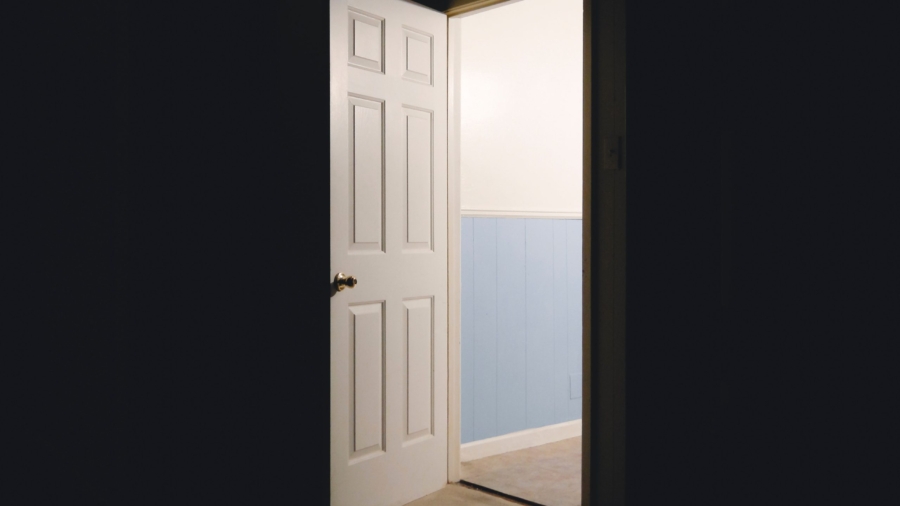by Ervin Laszlo
A global pandemic is an opportunity for global change—for rapid and effective change to a better world. Even if some people are depressed and do not see the light at the end of the tunnel, the pandemic we are experiencing is temporary; it will pass into history as all the previous pandemics did. But the change it brings may be lasting. It can be change for the better, or change for the worse. Making it a change for the better is an opportunity we cannot afford to miss.
We are in the midst of a “bifurcation”—the process scientists call a sudden forking in the evolutionary trajectory of a complex dynamic system. We are living the global systems-shift we have discussed and anticipated for years. We have learned a few things about such a shift. It is one-way, it cannot be reversed. But it is not predetermined—it allows choice. In a bifurcation, we can choose the way we go. For the first time in history, we can consciously and purposefully choose our destiny. This could be a bright destiny; the dawn of a new era of sanity and flourishing. But whether it will be that is not determined. It is up to us.
Bifurcation creates crisis, and crisis, as we know, is both danger and opportunity. Either way, it is a prelude to change. The challenge is to choose the change that leads to a sane and flourishing world. This is a real but non-recurring opportunity. Failing to seize it means returning to where we have been: facing the prospect of our collective demise. Because for the past several decades we have been exposed to a plethora of crises, and these are likely to be as global as the pandemic, but not necessarily as temporary.
They include conditions as bad or worse than a pandemic. For instance: millions dying of starvation and penury—and through epidemics and violence taking further millions with them. Hordes of displaced refugees tearing apart the fabric of more and more societies. Droughts turning fertile verdant land into arid, lifeless plains. Rising sea levels flooding a third of the human habitations on the planet. Violent storms destroying the homes of rich and poor alike. And local conflicts escalating into regional wars and turning into a global nuclear confrontation. The list could be extended, but the conclusion is clear. The unsustainable processes we have created could reach fateful tipping points— points of irreversibility. We either learn to live sanely and sustainably, or we leave the stage of history. This is a lesson we have learned on the level of theory. Now we are facing it in practice.
Returning to business as usual, to the norms and practices and the values and assumptions of the past, would be suicidal. Fortunately, it is not possible. This is just as well: another way is now open for us. The social, economic, political, and cultural systems that have been framing our life have been shaken to their roots. Disruptive change happened, and it is a prelude to fundamental change, whether constructive or destructive.
In a way, the pandemic is a blessing in disguise. It made us realize that we are a single global family: an interdependent and either co-evolving or co-devolving living system. If we fail to make good use of the opportunity this gifts us, we expose ourselves to a plethora of crises. But if we make good use of it, we can create a better world.
There is an important lesson to learn here. In his Inaugural Address, president Franklin D. Roosevelt told us that the only thing we have to fear is fear itself. Applied to the condition of the world today, this conveys a relevant and true message. We can build a better world if we stop being fearful. A better world is available to us; it is waiting to be built. There is nothing to fear but fear itself.
What is it, then, that we need to do? It is clear that we need to think constructively—dare to hope, and dare to act to realize our hope. But we also need to act differently; act as if we were part of the web of life on the planet. Because we are that, even if most of us neither realize nor act like it. We have been harming the planet, and so harming ourselves.We have ignored the interdependence and ultimate oneness of life. We need to adopt better goals. It is not “our people, our nation first”—not even all of humanity first. It is the web of life first, as it exists and evolves on Earth. When that web is safe and sound, we are safe and sound. Then we can flourish, instead of having to fight crisis after crisis.
“We can build a better world if we stop being fearful. A better world is available to us; it is waiting to be built. There is nothing to fear but fear itself. ”
Our body is healthy when it is whole, and the body of humanity is healthy when it is whole— when it embraces and values all the beings that walk the Earth. We know this, and we have always known it. But in the modern world we have suppressed this knowledge, buried it in our desperate scramble for money and power. We have used the fabulous fruits of the human genius maibly to achieve short-term mercenary ends. We have developed amazing energy and information technologies, and are using them single-mindedly, to achieve our ends without regard for the consequences. As a result our technologies respond to our short-term wants, but are indifferent to our long-term needs.
Some of our technologies have developed a life of their own. They are shaping human life and the human world. This is a dangerous development: it could lead to a variety of “corollary damages”— even to the creation of quasi-living organisms such as malignant viruses.
We must ensure that our technologies are safe, and that they serve our needs. This means achieving a healthy balance that allows all life on Earth to flourish in harmony. It is a monumental task, but in tackling it we need not rely only on the limited wisdom of our authorities and institutions. Our real guidance does not come from above and beyond—it comes from within and below. It is the guidance deriving from our sense of who we are, and how we relate to each other and to nature. The authority we can and should follow is deep and wise. It is our own deep self. Being a part of the web of life, whatever force or impetus forms and informs that web is “in” us—it is in our conscious and in our subconscious mind. And so, instinctively and intuitively we know that life is not just a jungle where the strongest survive, but a system of mutual harmonization, guided by empathy, a sense of belonging, and ultimately by unconditional love. This is not just what religious prophets and spiritual masters are telling us today; it is what down-to-earth quantum physicists, quantum biologists, and transpersonal psychologists are saying.
The guidance of our inner self is healthy, far more healthy than the relentless pursuit of riches and power. We are social beings, and we can live like such beings. Living like that is good for us, and good for the world. Living in harmony with others and with nature is healthier, happier, and more rewarding than chasing after self-centered short-term satisfactions.
When it comes to deciding the ways of our life and the path to our destiny, there is a new bottomline. We can take our life and our destiny into our own hands. We can be the change we wish to see in the world. In a global bifurcation, we are masters of our destiny. This we must realize, and this we must put into practice. Our health, our wellbeing, and our very survival depends on it.
We can thank the pandemic for opening the way to a global transformation. Now the way is open to creating a better world, a world that lives up to the power and the potential of the human spirit. When the pandemic subsides and passes into history, creating a better world will be our epochal task. There has never been a more exciting or more important task in the history of humankind.
Find out more:

Ervin Laszlo is President of the Laszlo Institute of New Paradigm Research, Founder and President of The Club of Budapest, Fellow of the World Academy of Art and Science, Member of the Hungarian Academy of Science and of the International Academy of Philosophy of Science, Senator of the International Medici Academy, and Editor of the periodical World Futures: The Journal of New Paradigm Research. He was nominated for the Nobel Peace Prize in 2006 and 2007. He is the author of more than sixty books translated into twenty-six languages, including Information Medicine: A New Paradigm for the Health Sciences, co-authored with Pier Mario Biava (2019), and The Tuscany Dialogues: The Earth, Our Future, and the Scope of Human Consciousness, with Michael Tobias (2019).
Bookshelf: Reconnecting to the Source
Read more from Ervin Laszlo: Reconnecting to Spiritual Experience


